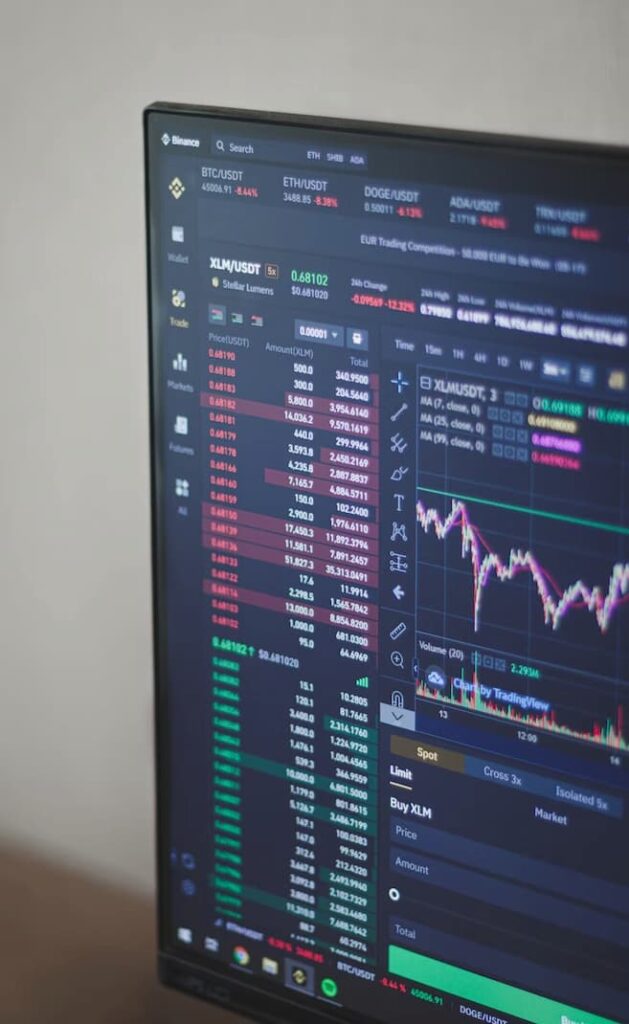We cannot imagine the modern financial market without network technologies, a powerful computer base, and special software implemented on the World Wide Web. The advent of the Internet has revolutionized the stock market. The trades of traders in the “pit,” carefully preserved on the New York Stock Exchange, can now be safely attributed to the monuments of world financial history. There has long been no technological need for this. However, with the advent of Internet trading, the essence of stock transactions remained the same, and the process’s main chain, “investor – broker – exchange,” remained intact.
What is Online Trading
Online trading in financial markets is one of the most popular ways to invest and increase savings. Previously, all orders for purchase and sale transactions were submitted to the broker in his office or by phone and could telegraph the order to the exchange, where a person in the exchange pit “voice” acquired the desired asset for the client.
Electronic trading has developed with the development of technology and the advent of the Internet. Now investors can independently analyze the market and submit trading orders directly to the exchange through terminals (special software for a computer or smartphone) provided by the broker.
Each investor or trader can independently make transactions with any instruments circulating on the exchange markets: bonds, stocks, currencies, futures, options, fund shares, etc.
Pros and Cons of Online Trading
The uniqueness of Internet technologies is that they are developing rapidly. And what was relevant 3-5 years ago is hopelessly outdated today. More and more people want to trade on the markets independently, without transferring money to trust management. Moreover, technologies allow an online analysis of the situation on the market, instructing the broker to open and close transactions through terminals. The choice of instruments is also wide – stocks, bonds, futures, currency, options, etc. The main advantages of online trading are:
- The undoubted advantages of online trading include the following:
- Almost instant receipt of trading orders to the exchange (less than 0.5 sec.);
- Control of open positions and financial results in real-time;
- Tracking prices, trading volumes, and other information;
- The ability to conduct technical analysis in real-time.
It is useful for beginners to know the disadvantages of online trading even before entering the market:
- Transaction speed is a double-edged sword. On the one hand, this is efficient; on the other hand, there is a high risk of losing a deposit. After all, the Internet can disappear for technical reasons when you need to close a deal or make an important investment decision, which will significantly affect the trader’s income.
- Great psychological pressure. Those who endure fluctuations in income, keep a cool head, and control the situation survive in this area and achieve results. After all, trading is characterized not only by huge profits but also by huge losses in the event of one failed transaction.
- Delving into the intricacies of trading requires a lot of attention, effort, and time.

Myths About Internet Trading
Investors in many countries have long appreciated the benefits of e-commerce. Does this mean that classic telephone brokerage services are no longer needed? Of course not. The practice of the American and European markets suggests that brokers cannot replace the telephone if it is necessary to conclude very large transactions, especially with less liquid securities. In addition, there are many instruments, such as bonds, for which small transactions do not make economic sense due to the nature of the instrument – the price of bonds is usually less subject to exchange rate fluctuations. So investors who prefer this type of security are forced to enter into transactions for large amounts and long term. It is also more convenient to trade bonds by phone because, during the conversation, you can agree on the terms of the transaction and a better price. Therefore, the emergence of online trading does not mean that classic brokers will disappear from the market. Now many of them will be able to supplement the list of their services with Internet services, and investors will have a choice.
What is the range of investors targeted by online trading? First of all, private investors make small transactions. The minimum amount that must be deposited into the broker’s account is determined only by the marketing policy of this broker. At the same time, investing all these funds in one security is unnecessary, and you can even make a diversified stock portfolio.
Online trading allows you to respond more quickly to the market, so all over the world, it is also in demand by professional investors – those for whom investing is the main way to make money. These are asset management companies and the so-called hedge funds. Such companies employ traders with many years of experience who are well-versed in the market, manage very large investments, and can make transactions themselves without the help of a broker.
Promising Conclusion
The Internet has made it easier for many people to access exchanges. This is good and bad simultaneously because the financial markets turned out to be a crowd of amateurs without a little preparation, draining capital for half an hour of trading. Internet trading has simplified the opening of an account and the work of brokers with clients and reduced their services. Yes, and the entrance to some exchanges (the same Forex) has become quite low for people with an average income. The trading audience has greatly expanded – if you take an ordinary user, then almost everyone can understand securities and actively buy shares simply because it is promising and can bring a good% profit in the future.



